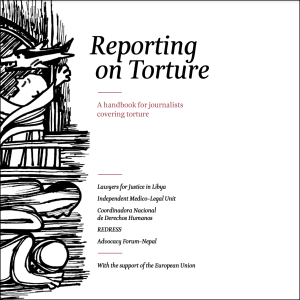Publications
REDRESS’ publications are also available in hard copy format. Please contact us for further information on [email protected].
In this brief, REDRESS provides an analysis of the victim participation framework enshrined in the International Crimes Division (ICD) rules adopted at the High Court in Uganda. The recommendations made herein are based on good practices identified by REDRESS in a study on victim participation in criminal proceedings across 22 countries. The aim of the recommendations is to support the ICD in ensuring that victims can exercise their rights to the fullest extent.
Du 12 au 13 Juillet 2016 s’est tenu dans la salle de conférence de JM Résidence à Bangui, un atelier sur la Cour Pénale Spéciale en République Centrafricaine co- organisé par Avocats Sans Frontières (ASF) et REDRESS. Cet atelier a connu la participation des acteurs judiciaires, des médias et des organisations de la société civile autour des questions relatives aux éléments clés et les prochaines étapes vers l’opérationnalité de la Cour Pénale Spéciale créée par la loi organique n°15.003 du 3 juin 2015.
This handbook aims to support and encourage journalists of varied experience to report on torture effectively. In doing so, we seek to assist journalists in the vital role they play in ‘breaking the silence’ around torture - a crime that thrives when perpetrators are left unscrutinised. Available in English, Spanish, Arabic, French and Nepali, this handbook addresses key questions about torture, including what it is, when it happens, why it happens, and what the consequences of torture are. It also provides guidance on how to interview torture survivors in an appropriate way. REDRESS authored the handbook jointly with Advocacy Forum-Nepal (AF), the Coordinadora Nacional de Derechos Humanos in Peru (CNDDHH), the Independent Medico-Legal Unit in Kenya (IMLU), and Lawyers for Justice in Libya (LFJL). It was launched on 26 June 2016, UN International Day in Support of Victims of Torture.
REDRESS has authored a joint submission with the Coalition Ivoiriènne pour la Cour Pénale Internationale (CI-CPI) and Lawyers for Justice in Libya (LFJL) to the International Criminal Court Prosecutor (OTP) on its new draft policy on how to select and prioritise cases. The submission calls on the OTP to ensure transparency in its application of the criteria set out in the draft policy, These comments follow a one-day consultation with civil society groups on the Draft policy, organised by the OTP in coordination with REDRESS, and a separate workshop organised by REDRESS with partners in the Ivory Coast.
Namibia is in the process of reviewing its criminal law framework with a view to incorporating the crime of torture in its domestic legislation in accordance with its international obligations. The “Prevention and Combating Torture bill”, which will address this issue, is currently pending in Namibia. In this report, REDRESS provides comments regarding the draft bill to its authors, the Namibian Law Reform and Development Commission. Our comments draw on our recent analysis of anti-torture legislative frameworks in seven African countries, including Namibia, which form the basis of our report “Legal Frameworks to Prevent Torture in Africa”.
This report presents an in-depth assessment of the anti-torture legal frameworks in place in seven countries in South and West Africa: the Democratic Republic of the Congo (DRC), Kenya, Namibia, Nigeria, South Africa, Tunisia and Uganda. The report identifies best practices, shortcomings and the key components of an effective anti-torture legislative framework, particularly in light of international and regional standards, including the UNCAT and the Robben Island Guidelines. This report forms part of our regional project, “Anti-Torture Legislative Frameworks: Pan-African Strategies for Adoption and Implementation”.
This report sets out the main areas of discussion of an expert consultation roundtable organised by REDRESS with a range of stakeholders in Abuja, Nigeria, regarding the draft anti-torture law currently under review in the country. Participants included representatives of the Nigerian Law Reform Commission, National Human Rights Commission, the Bar Association, civil society organisations, and other expert organisations. Following previous workshops in Nigeria organised by the Human Rights Implementation Centre (HRIC) of the University of Bristol in 2014 and 2015, during which earlier drafts of the anti-torture Bill were discussed, this workshop formed part of REDRESS’ 10-month project with the HRIC regarding anti-torture legislation in a number of states in Africa.
This report documents the proceedings of an expert conference organised by REDRESS and the Institute for Security Studies (ISS) on 8 - 9 September 2015 in Pretoria, South Africa. This conference brought together practitioners, lawyers, prosecutors and civil society actors from a number of African countries to explore methods of strengthening victims’ participation in criminal law proceedings. The discussion was informed by the publication of REDRESS recent report on victim participation in domestic criminal proceedings in a variety of countries worldwide.

